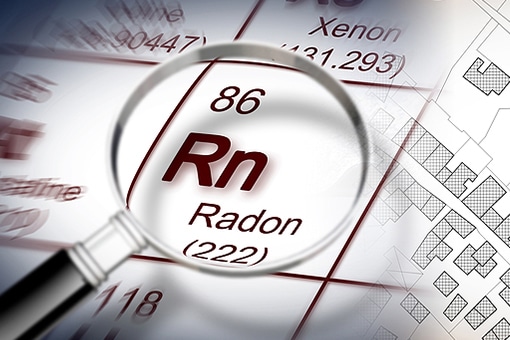Why Your South Carolina Home Needs Radon Testing
For some reason, many people seem to think that radon is a low priority issue. In reality, radon-induced cancer results in tens of thousands of U.S. deaths every year. Homes across the entire country carry risks. Today, Step By Step Inspections explains the risks and prevalence of radon so you can determine whether your home needs radon testing.

What Is Radon?
Radon is a gas that is expelled from the natural breakdown of uranium in rocks, soil, and water. The gas emits upward through the ground and into the air, dispersing and eventually breaking down. Radon is measured in picoCuries per liter of air (pCi/L). Outdoor radon generally measures 0.8 pCi/L. For context, measurements between 2-4 pCi/L carry moderate risk, and anything greater than 4 pCi/L requires treatment.
How Does Radon Exposure Occur?
Most exposure to radon occurs in homes, for a couple of reasons. First, people spend most of their time at home. Second, gas escapes through the soil and makes its way into homes through cracks and tiny openings in the home. Often, gas released into homes becomes trapped because of windows and doors being tightly sealed.
Radon exposure also occurs with water. If you use well water, your home needs radon testing. Why? Because radon accumulates in groundwater just as it does in soil. Small levels are okay, but higher levels pose health risks.
When radon exists in the home at 4 pCi/L or greater, everyone exposed to it runs greater risks of serious health issues.
What Health Risks Are Associated With Radon?
Radon emits radioactive particles as it decays. When inhaled, the particles attach to air passageways and the lungs, thereby damaging the cells. Consequently, damaged and mutated cells provide the gateway to cancer development and, with respect to radon exposure and lung cancer, it is often the case. In fact, the Environmental Protection Agency estimates that 21,000 U.S. deaths per year were associated with radon exposure, which is more deaths than from drunk driving. Moreover, the EPA states radon is the second leading cause of lung cancer, and the first leading cause for nonsmokers. People who smoke and are exposed to radon gas at unsafe levels in the home are at even greater risk of developing lung cancer.
How Do I Know If My Home Needs Radon Testing?
There are several scenarios in which your home needs radon testing to determine safety and mitigation:
- You’re purchasing a new home.
- You’re selling your home.
- You’ve never had radon testing before.
High radon levels can be a deal breaker when it comes to buying or selling a home. Additionally, you may be exposed to radon in your current home and not realize it. If you think your home needs radon testing, you need other inspection services, or you’d like a free quote, call Step By Step today at (843) 870-8726. We serve clients in Charleston and Beaufort, SC, and the surrounding areas.